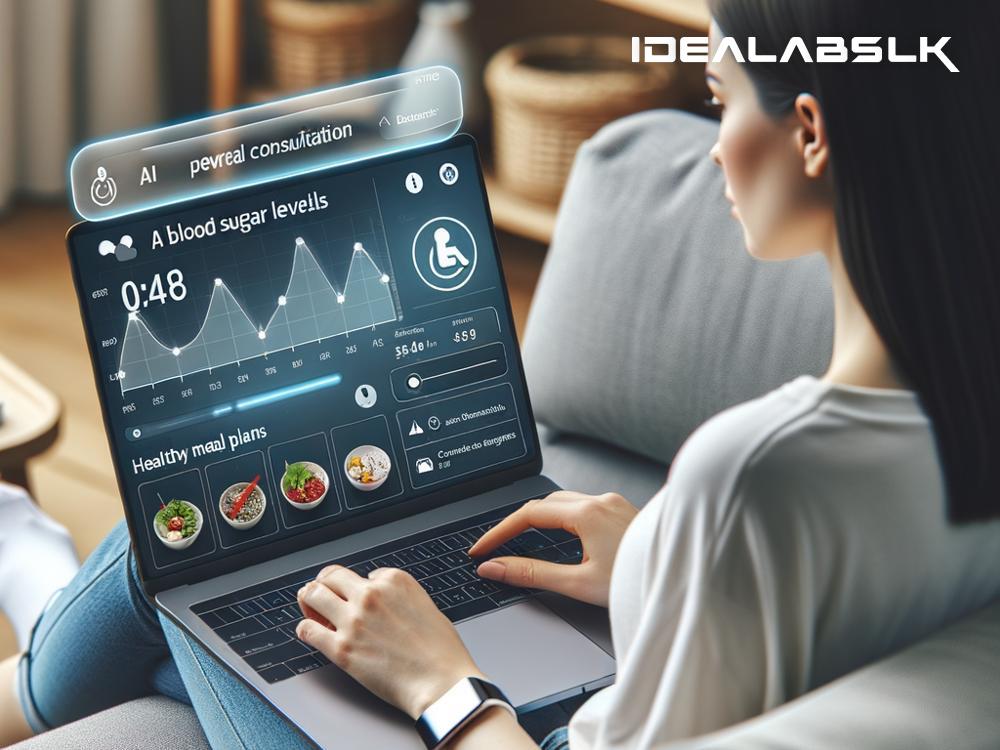Unleashing the Power of AI: How Virtual Assistants Are Revolutionizing Diabetes Management
In the whirlwind era of technological advancements, artificial intelligence (AI) has emerged as a beacon of hope for millions grappling with chronic conditions like diabetes. Among the most innovative solutions are AI-powered virtual assistants, ready to transform the way individuals manage this life-long condition. These digital companions are not just reshaping healthcare practices but are providing a much-needed support system for patients with diabetes. Let’s delve into how these virtual assistants are making diabetes management simpler, more effective, and incredibly personalized.
The Digital Revolution in Diabetes Care
Diabetes management is a complex journey involving constant monitoring, lifestyle adjustments, and making informed decisions. Traditionally, this required frequent visits to healthcare providers and a plethora of manual record-keeping. However, AI-powered virtual assistants are now taking center stage, offering a 24/7 support system right at the patient's fingertips.
Personalized Advice at Your Command
One of the most groundbreaking aspects of these AI companions is their ability to offer personalized health advice. By analyzing a user's health data, such as blood sugar levels, diet, and exercise, these assistants can provide targeted recommendations. Imagine getting suggestions for a meal plan that aligns with your glucose levels or a reminder to take a walk after a particularly sedentary day - all of this is made possible by AI. This level of personalization ensures that every user gets advice that's specifically tailored to their unique health profile, making diabetes management more effective than ever before.
Keeping Track Made Easy
Monitoring one's health data is a critical part of managing diabetes, but it can be tedious and overwhelming. Enter AI-powered virtual assistants, which simplify this process by automatically tracking and analyzing important metrics. Users can easily log their blood sugar levels, dietary intake, and physical activity in the app. The AI then goes to work, providing insights and identifying trends, such as how certain foods impact blood glucose or the best time of day for exercise. This constant monitoring and feedback loop empowers patients to make informed decisions about their health.
A Companion for Mental Health
Living with diabetes can be an emotional rollercoaster. The constant vigilance can lead to feelings of anxiety and depression. AI-powered virtual assistants are stepping up by offering support for mental well-being too. Through mood tracking features and interactive conversations, these assistants can detect signs of emotional distress and provide coping strategies. They might suggest mindfulness exercises, offer words of encouragement, or even remind patients to seek professional help if necessary. This holistic approach to diabetes management acknowledges that mental health is just as important as physical health.
Bridging the Gap Between Patients and Providers
One of the most promising impacts of AI-powered virtual assistants is their ability to bridge the gap between patients and healthcare providers. These tools can compile detailed health reports based on the tracked data, which patients can then share with their doctors. This ensures that healthcare providers have a comprehensive view of the patient's health outside the clinical setting, enabling more informed and personalized care.
Moreover, in scenarios where immediate medical intervention is needed, some AI assistants can alert healthcare providers directly. This feature is particularly beneficial for managing sudden spikes or drops in blood sugar levels, ensuring that patients receive prompt attention.
Conclusion
The dawn of AI-powered virtual assistants in diabetes management is not just a leap towards technological sophistication; it’s a stride towards empowering patients with the tools they need to lead healthier and happier lives. By offering personalized advice, simplifying health monitoring, supporting mental well-being, and enhancing patient-provider communication, these digital champions are revolutionizing the way diabetes is managed.
As we move forward, the potential for AI in healthcare is boundless. For individuals with diabetes, these virtual assistants are not just a glimpse into the future of healthcare; they are a present-day companion, guiding them through their journey with compassion, intelligence, and unwavering support. The integration of AI into diabetes care is a testament to how technology, when harnessed thoughtfully, can profoundly enhance the quality of life for millions around the globe.

